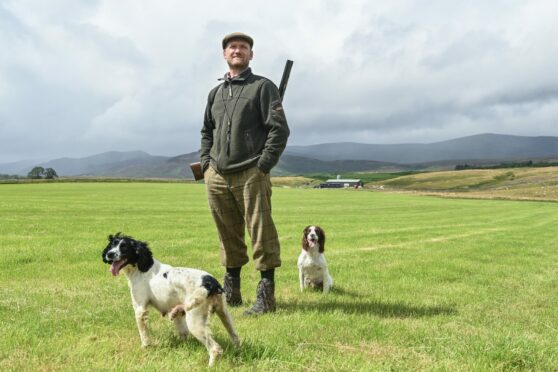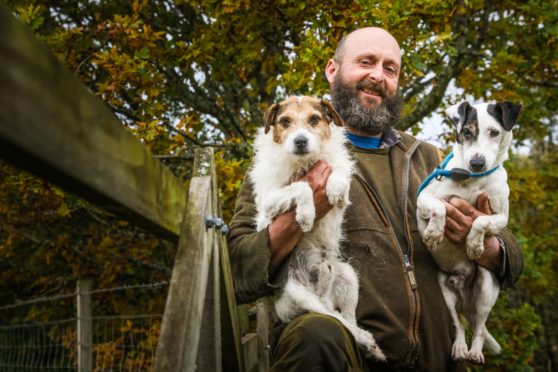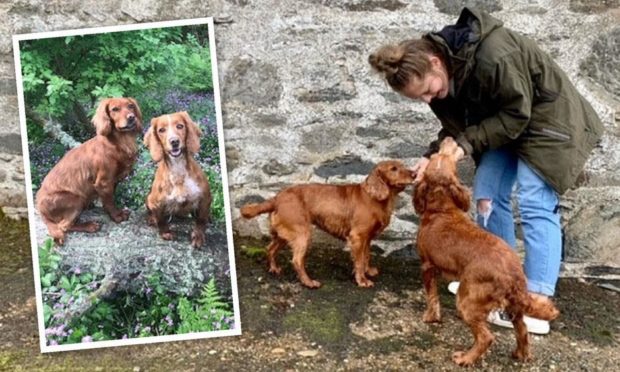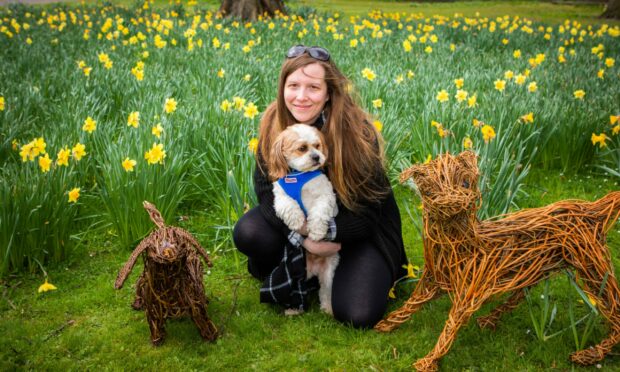The emotional impact of dog theft on its victims is being explored in our new documentary, Taken.
We have spoken to local dog owners affected to explore the devastating toll it has taken on their lives.
They are demanding tougher sentences for dog thieves.
It comes after the recent revelation Tayside is the dog theft capital of Scotland.
We talked to victims from across Tayside and the north-east of Scotland about security measures, social media appeals and their ongoing fears.
- A victim had three dogs stolen and never saw one again;
- One was only reunited with his dog more than a year after she was taken;
- A target told us she felt forced to close their boarding business;
- A gamekeeper said he struggled to complete a shooting season without his spaniel;
- A breeder is too afraid to use new outdoor kennels in case her award-winning dogs are targeted.
Our documentary launched ahead of the launch of a public consultation to gauge opinion on making dog theft a specific offence.
You can read more about the dog theft law consultation here.
Currently such offences are prosecuted under general theft legislation, which also covers items such as televisions, jewellery and mobile phones.
We spoke to the man behind the proposals, North East MSP Maurice Golden, to find out why he feels it is needed.
Top lawyer Fred Mackintosh KC also features in our film, arguing changes can be made without the need for new legislation.
Members of the public can have their say on the Scottish Parliament web page until it closes on January 16, 2023.
‘Sickening’ figures
Mr Golden wants to take a bill through the Scottish Parliament to increase the punishment for those who steal dogs.
He described the offences as “sickening”.
“These shocking figures are just the tip of the iceberg because we know many more offences often go unrecorded.
“The statistics illustrate why the law must change – it’s completely unacceptable that dog theft is currently treated the same as a criminal stealing a mobile phone as if pets like these were an inanimate object that can be replaced.
“A dog is part of the family and the law doesn’t recognise the loss, grief and mourning that owners face when their dog is stolen.”
How can I protect my dogs from theft?
We’ve also spoken to Katie McCandless-Thomas, of the Missing Pets, Perth and Kinross organisation, on how people can guard against theft.
She said there are a number of ways owners can act to lower the risk.
Don’t leave dogs outside a shop – even in your car
“Dog thieves have always targeted dogs left unattended outside shops but in recent years they have also targeted dogs in cars.
“Outside shops it can take less than a minute for a thief to unclip your dog’s lead and walk away with them.”
Dogs are more likely to be targeted in kennels – especially in rural areas
“If your dogs are kennelled then its strongly advised to strengthen security by investing in locks and even CCTV.
“CCTV has been crucial in getting many stolen dogs reunited with their owners.
“It’s very sad that it’s come to this but we would advise not to leave your dog unattended in your own garden too as dog thieves will also see this as opportunistic.”
Microchip and keep the details up to date
“All dogs are required by law to be microchipped but unfortunately some owners don’t register their dogs microchip or forget to update their details.
“This can make found dogs difficult to reunite with their owners.
“Stolen dogs can be moved hundreds of miles away in a short space of time so always keep microchip information up to date.
“If your dog does go missing you can contact your dogs microchip company to have the microchip marked as Missing/Stolen.
“This means if your dog is scanned for a chip by a vet/dog warden/police when the microchip company is contacted for the owners contact details it will also show that the owner has flagged their dog as missing/stolen.”
If your dog is stolen, make them too hot to handle
“If your dog is stolen it’s important to spread the word as soon as possible.
“Contact the police, your local dog warden and kennels.
“Also do an appeal on social media by posting on your own page and seeing if there is a local community missing pet organisation that can offer advice and support.”




